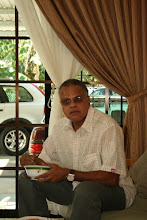Gastroscopy is done without sedation in our hospital. Sedation is always preferred by patients. In this study in Gastrointestinal Endoscopy assesses moderate sedation for routine endoscopic procedures.
Numerous agents are available for moderate sedation in endoscopy.
In this study authors compared efficacy, safety, and efficiency of agents used for moderate sedation in esophagogastroduodenoscopy or colonoscopy.
The team undertook a systematic review of computerized bibliographic databases for randomized trials of moderate sedation.The trials compared 2 active regimens or 1 active regimen with placebo or no sedation.The team assessed unselected adults undergoing esophagogastroduodenoscopy or colonoscopy with a goal of moderate sedation.The team measured sedation-related complications, patient assessments, physician assessments, and procedure-related efficiency outcomes.
The researchers evaluated 36 studies of 3918 patients. Sedation improved patient satisfaction and willingness to repeat esophagogastroduodenoscopy versus no sedation.
Midazolam provided superior patient satisfaction to diazepam, and less frequent memory of esophagogastroduodenoscopy versus diazepam. The researchers found adverse events and patient/physician assessments were not significantly different for midazolam vs propofol.
However, there was slightly less patient satisfaction, and more frequent memory problems with midazolam plus narcotics. Procedure times were similar, but sedation and recovery times were shorter with propofol than midazolam-based regimens.
The team noted marked variability in design, regimens tested, and outcomes; relatively poor methodologic quality.
Authors concluded, "Moderate sedation provides a high level of physician and patient satisfaction and a low risk of serious adverse events with all currently available agents."
"Midazolam-based regimens have longer sedation and recovery times than does propofol."
Powered by IP2Location.com
Sedation for Endoscopy
June 11, 2008
Posted by arif at 3:13 AM
Labels: Endoscopy, Gastroentrology, Internal medicine, Procedures
Move to top of post.
Subscribe to:
Post Comments (Atom)



1 comments:
true if there are no contraindications it would be defnitely a boon to patients if sedated before OGD as most of them refuse to repeat the procedure remembering details of the first time they underwent it.***
Post a Comment